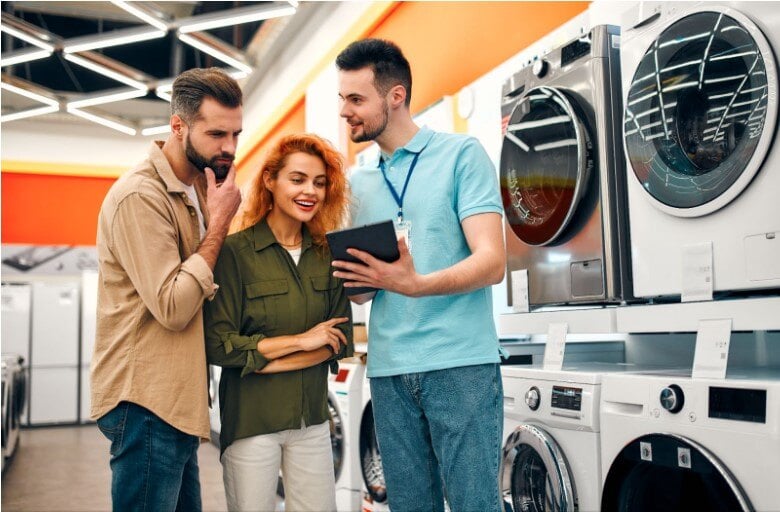
Brisbane, the capital city of Queensland, is renowned for its stunning river views and vibrant urban life. Yet, beneath its bustling cityscape, the importance of water conservation is paramount. With fluctuating rainfall patterns and the looming impacts of climate change, Brisbane faces considerable water supply challenges. As such, water conservation becomes a shared responsibility among its residents. Introducing water-efficient home appliances is a stellar way to contribute to this goal. Not only can they help reduce water consumption, but they also offer substantial benefits by lowering utility bills. With water rates on the rise, not to mention increasing environmental concerns, more Brisbane homeowners are considering eco-friendly choices. This guide serves to provide insightful, practical information for making informed decisions regarding water-efficient home appliances.
The Importance of Water Efficiency in Brisbane
Brisbane's climate is characterised by its humidity and distinct wet and dry seasons. However, the city occasionally faces periods of drought that challenge its water supply management. Given these conditions, reduced water usage is crucial. By embracing water-efficient practices, households can significantly slash their water bills whilst aiding the environment. Reduced water consumption lessens the strain on local water resources, promoting a more sustainable living environment.
Understanding the average water costs in Brisbane is a good starting point for evaluating potential savings. With water rates rising due to increasing demand and limited supply, households can benefit financially by investing in water-efficient appliances. Pairing this knowledge with available government incentives, such as rebates for purchasing efficient products, makes the decision to upgrade both economically and environmentally advantageous.
Understanding Water Efficiency Ratings
Australians, particularly in resource-conscious Brisbane, are becoming increasingly familiar with water efficiency ratings and labelling systems. The star rating on appliances acts as a quick reference, guiding consumers to make water-wise purchases. More stars equate to greater efficiency, but navigating these ratings is essential for comparing products accurately.
The key to understanding these labels lies within the Water Efficiency Labeling and Standards (WELS) scheme. This program mandates that all water-using products sold in Australia carry a label illustrating their water efficiency. When shopping for appliances, consider the litres of water used per cycle or hour. By comparing these figures across different models, consumers can make a more informed choice that aligns with their conservation goals.
Top Water-Efficient Dishwashers for Your Home
Dishwashers have evolved tremendously in recent years, offering a more water-efficient option compared to hand-washing. Integrating a water-efficient dishwasher can make a sizeable difference in reducing household water consumption. Current models boast advanced technology that significantly cuts down on water usage while maintaining high levels of cleanliness.
When considering a dishwasher for the Brisbane market, brands like Bosch and Fisher & Paykel stand out. They offer models engineered for superior water efficiency, some using as little as 11 litres per cycle. Regular maintenance, such as cleaning filters and checking for leaks, ensures these appliances continue to perform optimally over time, maximising water savings.
Selecting High-Performance Washing Machines
The decision between a front load and a top load washing machine can often pivot around water efficiency. Front loaders typically consume less water and are favoured for their capacity to handle larger loads with minimal resource usage. Besides, they tend to have a more gentle washing action, which helps prolong the lifespan of clothes.
When selecting a washing machine, it is prudent to consider not only water efficiency but also energy consumption. Models that emphasise both aspects often deliver significant savings. LG and Samsung offer washing machines specifically designed for water efficiency, with some models using as little as 60 litres per wash. To further conserve water, consider operating machines on full loads and opting for eco-friendly wash cycles.
Water-Saving Tips with Modern Refrigerators
Though not always top of mind when considering water efficiency, modern refrigerators offer several features that contribute to reduced water usage. Models equipped with in-built water dispensers and ice makers that recycle unused water are optimal choices for those keen on conservation.
Routine maintenance is vital for refrigerators to maintain optimal performance. Regularly cleaning condenser coils and promptly attending to leaks can prevent unnecessary waste. Eco-friendly refrigerator models from brands like Electrolux often combine these features, ensuring they not only fit seamlessly into sustainable living but also provide added convenience.
Conserving Water with Efficient Toilets and Faucets
Bathrooms, accounting for a significant portion of household water use, are ripe for efficiency upgrades. Dual-flush toilets and water-saving faucet aerators offer tangible water savings. Dual-flush systems provide users with options to control water usage per flush, significantly reducing water consumption.
When planning a bathroom renovation, water-saving products from companies like Caroma present ideal solutions. Replacing older installations with efficient models can elevate a home's water conservation credentials and offer substantial savings on bills. Proper installation and regular system checks will ensure continued efficiency.
Conclusion
Investing in water-efficient appliances is a prudent step for Brisbane homeowners. By reducing water costs with efficient appliances, residents can ease the impact on their wallets while contributing to the community's sustainable future. Assessing current home appliances and considering upgrades to more efficient models can pave the way for a more water-conscious lifestyle. As trends lean increasingly towards water efficiency, homes equipped with modern, sustainable appliances not only reflect environmental responsibility but also promise a durable investment in reducing overall household expenses. For more information on water-efficient appliances and local suppliers in Brisbane, exploring online resources and consulting with local retailers could provide further guidance.


.png?w=600)




